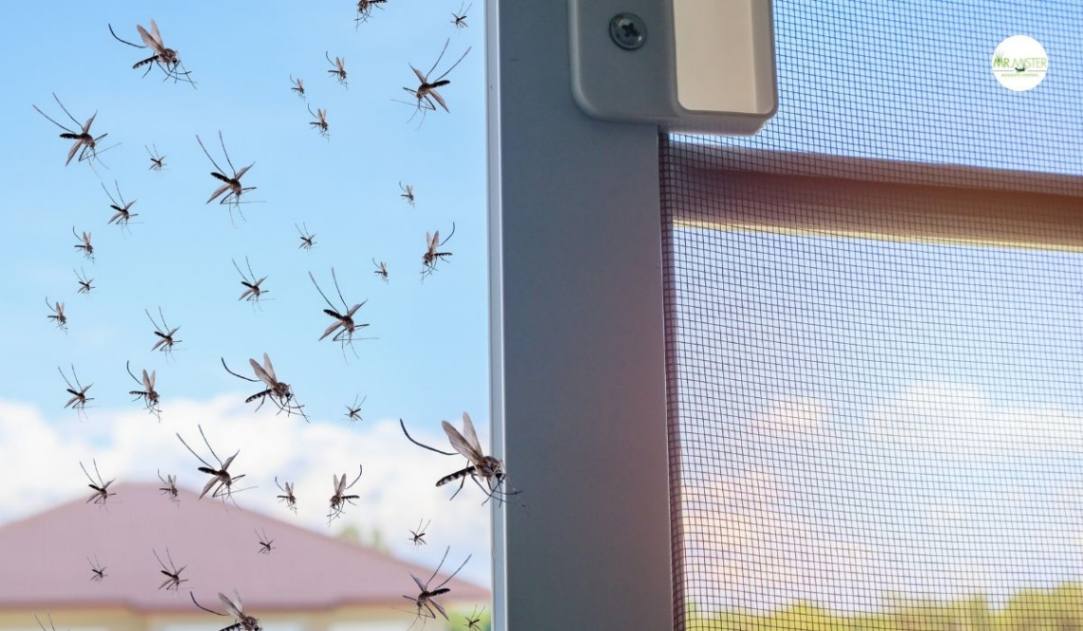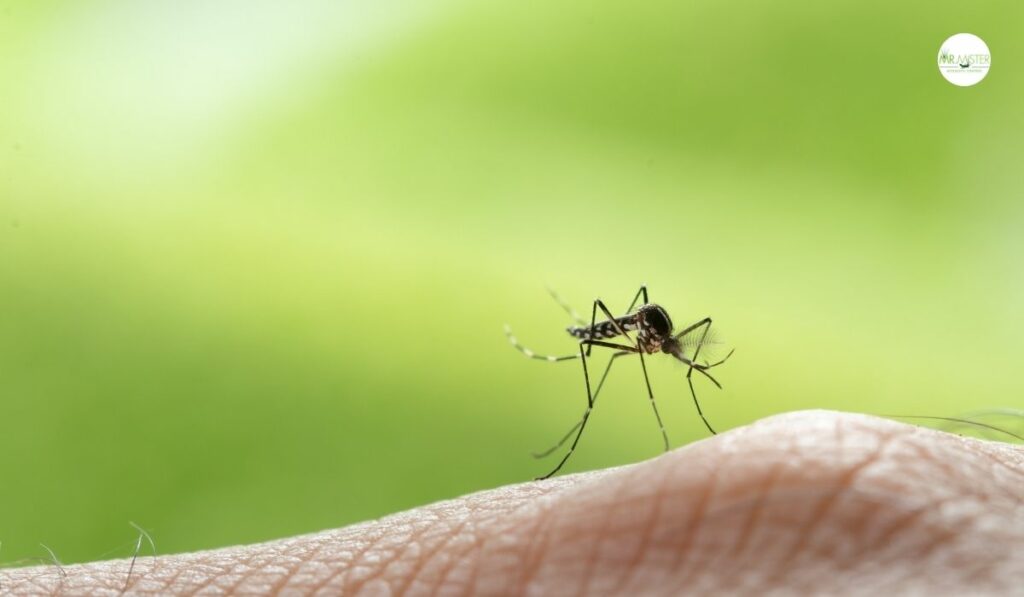The Sweet Spot: Finding Balance with Bee-Friendly Mosquito Control
In the intricate ecosystem of our planet, every creature plays a vital role.
Bees, with their pollination prowess, are among nature’s greatest allies, facilitating the growth of crops and sustaining biodiversity.
However, the ubiquitous presence of mosquitoes poses a challenge to human comfort and health, leading to the widespread use of insecticides.
Unfortunately, these chemicals often harm beneficial insects like bees, disrupting the delicate balance of our ecosystems.
The quest for a solution that effectively controls mosquitoes while safeguarding bees has led to the emergence of bee-friendly mosquito control methods.
Understanding the Challenge:
Mosquitoes, notorious for their itchy bites and potential disease transmission, thrive in various environments worldwide.
Traditional mosquito control methods typically involve the use of chemical insecticides, which indiscriminately target all insects, including bees.
This approach poses a significant risk to pollinators, contributing to the decline of bee populations globally.
Recognizing this dilemma, researchers and environmentalists have been seeking alternative strategies that prioritize both mosquito control and bee conservation.
The Importance of Bees:
Bees are indispensable contributors to ecosystems and agriculture.
Through pollination, they enable the reproduction of flowering plants, including many food crops. Approximately one-third of the world’s food supply depends on pollinators like bees.
Moreover, bees play a crucial role in maintaining biodiversity, supporting wildlife habitats, and sustaining ecosystems.
Given their profound ecological and economic significance, protecting bee populations is paramount for the well-being of our planet.
Bee-Friendly Mosquito Control Methods:
In recent years, innovative approaches to mosquito control have emerged, aiming to mitigate the adverse effects on bees.
One such method involves the use of biological control agents, such as certain species of bacteria or fungi, which specifically target mosquito larvae while sparing non-target organisms like bees.
These biopesticides offer an environmentally sustainable alternative to chemical insecticides, minimizing harm to beneficial insects.
Furthermore, integrated pest management (IPM) strategies incorporate a multifaceted approach to mosquito control, combining various techniques such as habitat modification, biological control, and targeted pesticide application.
By focusing on reducing mosquito breeding sites and employing selective control measures, IPM minimizes mosquito management’s ecological footprint while preserving bee populations.
Community Engagement and Education:
Practical mosquito control efforts require the participation of communities and individuals.
Educating the public about the importance of bees and the potential risks associated with conventional insecticides is essential for fostering support for bee-friendly mosquito control initiatives.
Encouraging practices such as eliminating standing water, using mosquito traps, and planting bee-friendly gardens can empower individuals to contribute to mosquito control efforts while promoting bee conservation.
Collaboration and Research:
Collaborative efforts between scientists, policymakers, and community stakeholders are critical for developing and implementing bee-friendly mosquito control strategies.
Continued research into novel mosquito control methods, such as genetic modification of mosquitoes or the use of repellents derived from natural sources, holds promise for further reducing the impact on bee populations.
Conservation of Bee Habitats:
Preserving natural habitats and creating bee-friendly landscapes are integral components of bee-friendly mosquito control.
Protecting diverse ecosystems ensures the availability of suitable foraging areas and nesting sites for bees.
Additionally, incorporating native flowering plants into urban and agricultural landscapes provides essential food resources for bees while enhancing biodiversity.
By prioritizing habitat conservation and restoration efforts, we can support healthy bee populations and mitigate the need for extensive mosquito control measures.
Monitoring and Evaluation:
Regular monitoring and evaluation of bee populations and mosquito control interventions are essential for assessing their effectiveness and identifying areas for improvement.
Utilizing citizen science initiatives and collaborative research projects empowers communities to participate actively in monitoring bee populations and tracking mosquito activity.
By gathering data on insect populations, pesticide usage, and ecosystem health, stakeholders can make informed decisions and adapt strategies to minimize unintended impacts on bees.
Policy and Regulation:
Government policies and regulations play a crucial role in promoting bee-friendly mosquito control practices and mitigating the use of harmful insecticides.
Implementing restrictions on the use of neonicotinoid pesticides, which have been linked to bee declines, and incentivizing the adoption of alternative mosquito control methods can facilitate the transition towards bee-friendly practices.
Furthermore, integrating bee conservation considerations into land-use planning and agricultural policies ensures that bee habitats are protected and preserved.
Public Awareness and Advocacy:
Raising awareness about the importance of bees and the threats they face from mosquito control measures is essential for fostering public support and advocacy.
Engaging in outreach activities, educational campaigns, and media initiatives can amplify the message of bee conservation and promote bee-friendly mosquito control practices.
By mobilizing individuals, communities, and organizations to advocate for policies that prioritize bee health, we can create a groundswell of support for sustainable mosquito control strategies.
Conclusion:
In conclusion, finding the sweet spot in mosquito control where bee conservation is prioritized requires a concerted effort from individuals, communities, industries, and governments.
By embracing innovation, education, and advocacy, we can navigate toward a sustainable future where bees thrive, ecosystems flourish, and human well-being is safeguarded.
Let us continue to work together towards a world where the buzz of bees harmonizes with the rhythm of nature, creating a symphony of life for all beings to enjoy.
To join us in this endeavor and learn more about bee-friendly mosquito control initiatives, please visit MR. MISTER MOSQUITO CONTROL.
FAQs
Why is bee-friendly mosquito control important?
Bee-friendly mosquito control is crucial because traditional methods often harm beneficial insects like bees. Bees are essential for pollination and ecosystem health, so protecting them while controlling mosquitoes maintains the delicate balance of our ecosystems.
What are some bee-friendly mosquito control methods?
Several bee-friendly mosquito control methods exist, including the use of biological control agents like certain bacteria or fungi that target mosquito larvae while sparing bees. Integrated pest management (IPM) strategies, which combine habitat modification, biological control, and targeted pesticide application, are also effective.
How can individuals contribute to bee-friendly mosquito control efforts?
Individuals can contribute by eliminating standing water, using mosquito traps, and planting bee-friendly gardens with native flowering plants. Educating others about the importance of bees and the risks of conventional insecticides is also essential for fostering support for bee-friendly practices.
What role does community engagement play in bee-friendly mosquito control?
Community engagement is crucial for practical mosquito control efforts. Educating the public, fostering support for bee-friendly initiatives, and encouraging practices like habitat conservation and planting bee-friendly gardens empower communities to contribute to mosquito control while protecting bee populations.
How can collaboration and research support bee-friendly mosquito control?
Collaborative efforts between scientists, policymakers, and community stakeholders are essential for developing and implementing bee-friendly mosquito control strategies. Continued research into novel methods, such as genetic modification of mosquitoes or natural repellents, holds promise for reducing the impact on bees.
What policies and regulations are needed to promote bee-friendly mosquito control?
Government policies and regulations can promote bee-friendly practices by restricting harmful insecticides like neonicotinoids, incentivizing alternative mosquito control methods, and integrating bee conservation into land-use planning and agricultural policies.
How can public awareness and advocacy help promote bee-friendly mosquito control?
Raising awareness about the importance of bees and the threats they face from conventional mosquito control measures is essential for fostering public support and advocacy. Outreach activities, educational campaigns, and media initiatives can mobilize individuals and communities to prioritize bee health and support sustainable mosquito control strategies.
What are the risks associated with conventional mosquito control methods?
Conventional mosquito control methods often involve the use of chemical insecticides, which can harm not only mosquitoes but also beneficial insects like bees. These chemicals may disrupt ecosystems, harm wildlife, and pose risks to human health and water quality. Additionally, overreliance on pesticides can lead to the development of resistance in mosquito populations, making control efforts less effective over time.
How do bee-friendly mosquito control methods differ from conventional approaches?
Bee-friendly mosquito control methods prioritize the protection of bees and other beneficial insects while targeting mosquitoes. Unlike conventional insecticides, which can harm a broad range of organisms, bee-friendly methods utilize biological control agents or integrated pest management strategies that specifically target mosquitoes while minimizing harm to non-target species.
Are bee-friendly mosquito control methods effective in controlling mosquito populations?
Yes, bee-friendly mosquito control methods have been shown to be effective in reducing mosquito populations while protecting bees and other beneficial insects. Biological control agents and integrated pest management strategies offer environmentally sustainable alternatives to chemical insecticides, providing effective mosquito control without compromising ecosystem health.
What are some examples of biological control agents used in bee-friendly mosquito control?
Certain species of bacteria, fungi, or predators that target mosquito larvae are biological control agents used in bee-friendly mosquito control. These agents offer targeted control of mosquitoes while minimizing harm to bees and other non-target organisms, making them valuable tools for sustainable mosquito management.
How can individuals create bee-friendly habitats to support bee populations?
Individuals can create bee-friendly habitats by planting native flowering plants, providing nesting sites like bee hotels or undisturbed soil, and avoiding the use of pesticides in their gardens. Creating diverse landscapes with a variety of flowering plants ensures a continuous food supply for bees throughout the year, supporting their health and population.
What are some common misconceptions about bee-friendly mosquito control?
One common misconception is that bee-friendly mosquito control methods are less effective than conventional approaches. In reality, bee-friendly methods can be equally or even more effective in controlling mosquitoes while minimizing harm to bees and other beneficial insects. Another misconception is that mosquito control efforts must rely solely on chemical insecticides, disregarding the potential ecological and health risks associated with these chemicals.
* Schedule a Free Mosquito Control Consultation – 404-941-0720 *
* Guaranteed Results * 100% Biodegradable * Locally Owned







